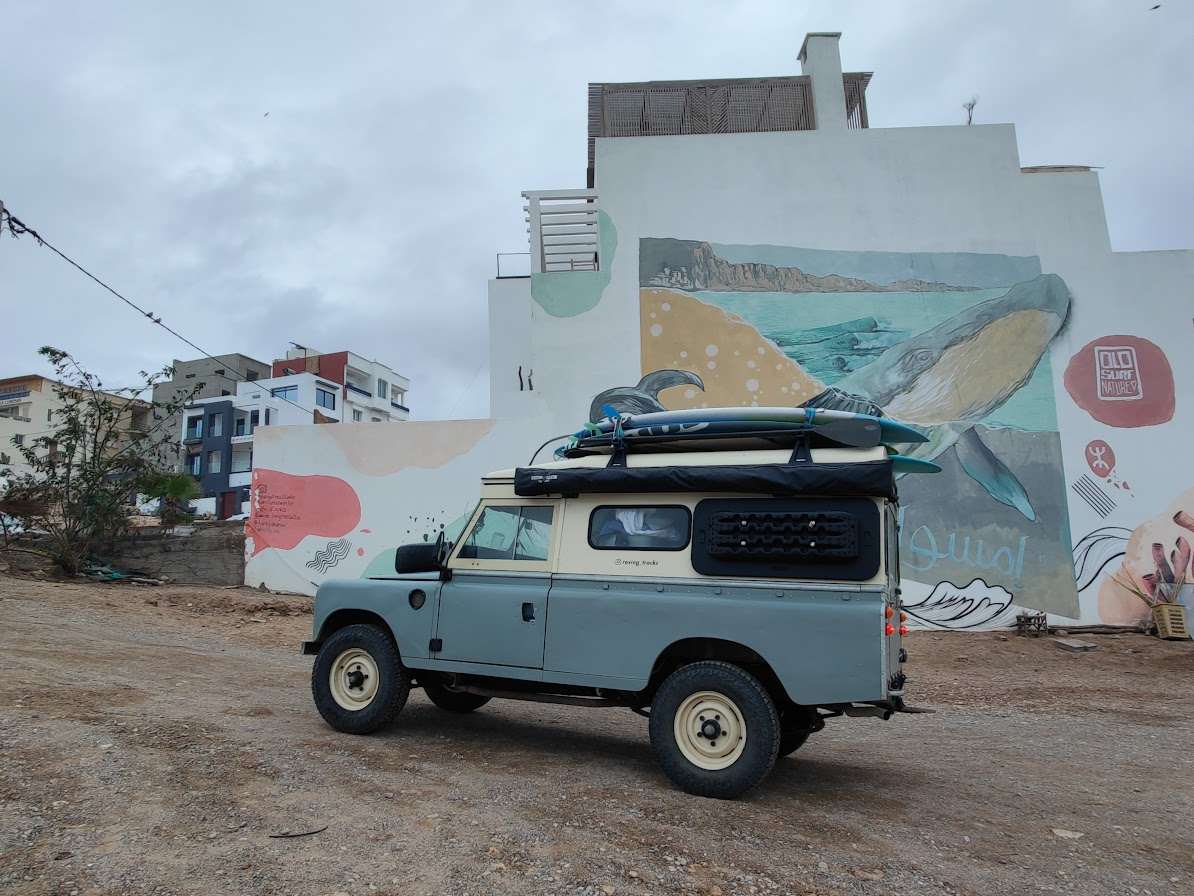'Are they they clowns who crowd funded for a new engine?' the response was when a Tasmanian Facebook group was alerted of the arrival of a travel 'influencer' couple. 'Yeah' came the response. 'I should crowd fund for a new diff' - cue guffaws and more bitter criticisms of these Youtubers with a 100k following and lots of Patreon subscribers that help fund their round the world trip. People like them are often painted as fame hungry, self centred, shameless opportunists which profit from the oversharing attention culture and getting quick cash for collabs with brands. But it's not the whole picture. I think sometimes we're too hard on them, and don't consider the value they bring, the work that goes into their content that we so eagerly consume, and how the media world has changed enormously.
I definitely get the outrage at the Youtubers. I'm guilty of wondering why they can't pay for it themselves, or how it's fair I'm slogging at a teaching job whilst they ask for money from hardworking Australians. To many, contributing to someone’s travel funds feels unjustified, as if they'e part of the generation that expects things handed to them on a platter. But this outrage is also an example of how we are very fast to judge, and don't think about the reality of creating content that brings value to our lives.
But I'm also guilty of consuming their content - fascinated by their travels in South America or their trek to Cape York. Critiques often forget they are slamming the very content creators that they enjoy. We live in a reality where Youtube is often our first port of call for entertainment, whether it's DIY videos on how to crochet or an hour long documentary on travelling through Mongolia on horseback. Many of these travel videos in particular are self funded, and it's only the very best of them and the hardest working that get paid enough on Youtube to warrant continuing their endeavours. Just like indepedent filmmakers, they're often operating on tight budgets with self purchased camera equipment, have spent hours upon hours teaching themselves how to create quality content and work complicated social media algorithms to be seen, and don't have the backing of major sponsors like National Geographic.

If only we had video skills - we could be Youtubers too! Our Land Rovr, Morocco.
Talking to our 'influencer' travel doco friends, we've begun to understand how much work goes into their efforts. From planning logistics to filming, editing, and producing, creating a single 20-minute episode can take a long time, and you also need the tech skills. There is no guarantee of financial security in such an occupation, and they spend a lot of time thinking about content that inspires, educates and entertains, as well as keeping Patreon members happy by having en route meets ups and so on. 'Going on holiday' sounds great, but if every moment has to be filmed and storyboarded, it's also a job. It's exactly why we don't Youtube our travels - we don’t have the patience for it. There’s also a whole heap of other skills needed, like business acumen and planning and organisation skills.
The value they bring to the audience is also underrated. We forget how platforms like YouTube have become legitimate sources of documentaries. Through these we experience new cultures and places and histories that once we’d only find out through magazines or BBC documentaries. We often appreciate the raw, authentic, unscripted, and personal nature of such content - we’re more likely to identify with people just like us doing cool things. It makes us feel that maybe we can do it too. Remember often they’re the ones that got off the couch and followed a passionate dream. Maybe critics are just jealous doing their 9 to 5.
Travel Youtubers are often pretty intentional in building communities and shaping content that their audiences asks for. If we’re part of these communities, we feel genuinely bonded to them. So whilst it might seem weird to watch someone ask for financial support for an unexpected engine breakdown, a large community chipping in twenty bucks or a hundred bucks isn’t that criminal. It’s just an extension of that connection, where creators are pretty transparent about their needs and invite their viewers to be involved in a journey they feel part of. If you don’t feel a part of that experience, don’t contribute - simple. I didn’t. I didn’t have spare cash. But I would have, if I had money at the time. I didn’t to the girl whose Kombi caught on fire and her friend asked for a crowdfund - she didn’t offer anything in return, I didn’t know her, she wasn’t part of my community, and to be honest, that’s just a life lesson that most of us have had to manage at some point in our lives.
I guess it’s easy to judge influencers but we have to consider how many are providing value to their audience in an authentic way. We have to stop and recognise the work, passionate, effort and intention they put into their content, and give them a break. We live in a world where we’d rather consume content anywhere but mainstream television, and we have to recognise that it’s unfair to expect that for free. Even if we don’t particularly like their field, we have to consider whether they bring something meaningful to the digital landscape for others.
With Love,

Are you on HIVE yet? Earn for writing! Referral link for FREE account here